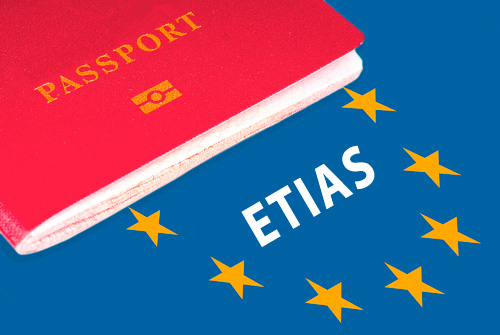Applying for ETIAS Visa Waiver

The main reason for the approval of the ETIAS authorization is security. With the increased risk of travelers worldwide, the EU wants to ensure safe travels in its countries. The ETIAS will decrease security concerns substantially through its information and data gathering systems. What this means, is that the ETIAS will detect if a person is a threat in any way to the security of Schengen countries. This will lead to the person being denied entry and avoiding the threat from being present inside EU borders. It will basically deal with a problem before it is even there.
According to the European Commission, ETIAS will integrate with and complement existing security databases, such as the as Schengen Information System (SIS), as well as those still in development like the Entry Exit System (EES). The EES will allow authorities to get a closer look at cross-border movement and travel history data. ETIAS will be integrated and interoperable with other EU authorization systems and will automatically cross-check each application against the Schengen Information System (SIS) Europe’s most often used security database, in place since 2013. SIS contains more than 80 million records
ETIAS, the European Travel Information System, provides qualifying visitors a visa waiver when traveling to the Schengen Area, a group of European countries that have agreed upon who can visit and how long they can stay. The Schengen Area was created by the European Union, or EU, in the spirit of harmonious and free travel between borders and has grown to 26 countries – most are in the EU but some are not. Given the influx of international travelers to the Schengen Area, more comprehensive security checks have had to be put in place. ETIAS, much like ESTA in the United States, will create centralized data on who is visiting and why, providing enhanced security for all.
Approved ETIAS applicants can travel in and between countries in the Schengen Area, for up to 90 days within a 180-day period. Qualifying travel purposes include tourism, short-term business reasons such as a conference or client meeting, short-term education such as an internship, and medical procedures. ETIAS approval is valid for 3 years with no travel limit, as long as the traveler has a passport not expiring for 90 days from the day of arrival abroad. However, your ETIAS expires when your passport does.
Europe is an amazing travel destination, here are a few attractions you can visit. Puig des Molins translates as hill of windmills. Located just outside the old town, and on the original 7th century BC Phoenician settlement site, the area also contains a large, ancient, and well-preserved necropolis, with an estimated 3000 tombs (although only a handful of these are open to the public). The hillside is like a rabbit warren of tombs, most of which remain un-excavated, and you can follow a set route around the hypogea (burial chambers) and even descend into one. Now an UNESCO World Heritage Site, there is also an archeological museum on site, detailing the necropolis’s history century by century. Entry to the museum is very cheap and it makes for a fascinating visit.
The ETIAS application form takes about 20-25 minutes to complete, and response will be issued immediately. It’s critical that your application be error-free and that the information is an exact match to your passport. Any discrepancies between your ETIAS application and your passport could cause a delay in processing and/or approval. Read extra info on Schengen Visa.